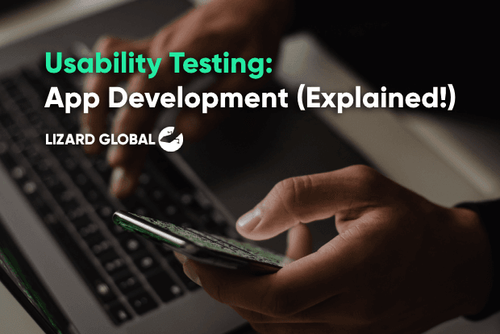What Are Self-Hosted AI Solutions?
Get the latest updates about our blog posts.
Subscribe so you don’t miss out!
Artificial Intelligence (AI) has rapidly become an essential part of modern business, driving innovation, efficiency, and competitive advantage across industries. While cloud-based AI solutions have dominated the landscape due to their convenience and scalability, self-hosted AI solutions are emerging as a compelling alternative for organizations that prioritize control, security, and customization.Key takeaways:
- Data Control: Self-hosted AI solutions offer complete control over data, crucial for industries with strict privacy and security requirements.
- Customization Flexibility: Businesses can tailor AI models and infrastructure to specific needs, enhancing operational efficiency and effectiveness.
- Predictable Costs: Hosting AI internally allows for better cost management, avoiding the variable pricing of cloud-based services.
- Enhanced Security: Self-hosted AI reduces exposure to external threats, making it a safer option for handling sensitive data.
- Scalability and Performance: With the right infrastructure, self-hosted AI can deliver superior performance, especially in low-latency applications.
This deep insight explores what self-hosted AI solutions are, why they are gaining traction, their benefits and challenges, how businesses can implement them effectively, and provides real-world examples and case studies to illustrate their impact.
Understanding Self-Hosted AI Solutions
Self-hosted AI solutions refer to AI applications, tools, and models that are deployed on an organization's own infrastructure rather than being hosted by a third-party cloud service provider. These solutions give companies full control over their AI operations, from data management to model deployment and updates.
In a self-hosted environment, businesses can choose to deploy AI on-premises, within their private cloud, or in a hybrid setup. The key characteristic is that the organization retains complete ownership and oversight of the AI systems, including the underlying data, algorithms, and hardware resources.
Why Are Companies Opting for Self-Hosted AI Solutions?
Several factors are driving the shift towards self-hosted AI solutions, including:
Data Privacy and Security: Organizations with sensitive data, such as healthcare, finance, and government sectors, often prefer self-hosted AI to maintain strict control over their data. Hosting AI solutions internally reduces the risk of data breaches and ensures compliance with data protection regulations.
Customization and Flexibility: Self-hosted AI allows businesses to tailor AI models and infrastructure to meet specific needs. This level of customization is often not possible with off-the-shelf cloud-based AI services.
Cost Management: While cloud AI solutions offer scalability, they can also lead to unpredictable costs as usage grows. Self-hosted AI can provide more predictable cost structures, particularly for organizations with consistent AI workloads.
Performance and Latency: For applications that require low latency and high performance, such as real-time processing or edge computing, self-hosted AI can offer superior performance by reducing dependence on remote cloud servers.
Regulatory Compliance: Industries bound by stringent regulatory requirements may find it easier to achieve compliance with self-hosted AI, as it allows for complete control over data storage, processing, and access.
How is Machine Learning related to AI? Learn more here!
Key Components of Self-Hosted AI Solutions
Implementing self-hosted AI solutions involves several critical components:
Hardware Infrastructure: Organizations need robust hardware infrastructure, including GPUs, TPUs, or specialized AI accelerators, to support the computation-intensive nature of AI workloads.
Data Management Systems: Effective data storage, retrieval, and management systems are essential for feeding AI models with high-quality data. This includes databases, data lakes, and data warehouses.
AI Frameworks and Tools: Self-hosted AI solutions rely on open-source or proprietary AI frameworks, such as TensorFlow, PyTorch, or Apache MXNet, to develop, train, and deploy models.
Deployment and Monitoring Tools: Tools for deploying AI models and monitoring their performance in real-time are crucial for maintaining efficiency and reliability. This can include containerization platforms like Docker and orchestration tools like Kubernetes.
Security Measures: Ensuring the security of AI solutions involves implementing robust cybersecurity measures, including firewalls, encryption, access controls, and regular security audits.
Want to find out how much it costs to build your dream app or web app?
Benefits of Self-Hosted AI Solutions
Data Ownership: With self-hosted AI, organizations have full ownership and control over their data, which is critical for protecting intellectual property and ensuring compliance with privacy regulations.
Customization: Self-hosted AI allows for greater customization of models and workflows, enabling businesses to fine-tune their AI systems to meet unique operational needs.
Predictable Costs: By hosting AI solutions internally, businesses can better predict and manage costs, avoiding the potential for unexpectedly high bills associated with cloud services.
Enhanced Security: Keeping AI infrastructure in-house minimizes exposure to external threats and vulnerabilities, enhancing overall security posture.
Regulatory Compliance: Self-hosted AI can simplify compliance with industry-specific regulations by giving organizations complete control over data handling and storage.
Challenges of Self-Hosted AI Solutions
High Initial Investment: Setting up the infrastructure for self-hosted AI requires significant upfront investment in hardware, software, and skilled personnel.
Complexity: Managing self-hosted AI solutions is complex and requires specialized knowledge in AI, data science, and IT infrastructure.
Maintenance and Updates: Organizations must be prepared to handle ongoing maintenance, updates, and scaling of their AI systems, which can be resource-intensive.
Talent Acquisition: Building and maintaining self-hosted AI solutions requires a team with expertise in AI, data engineering, and IT infrastructure, which can be challenging to assemble.
Ever wondered what Extended Reality Technologies are? Check out our blog all about it!
Case Studies of Self Hosted AI in Various Industries
1. Healthcare: Philips Healthcare
Philips Healthcare uses self-hosted AI solutions to enhance diagnostic imaging and patient monitoring systems. By deploying AI on-premises, Philips can ensure data privacy and integrate AI models directly with their medical devices. This approach allows for real-time analytics and personalized treatment recommendations while adhering to stringent healthcare regulations.
2. Finance: JPMorgan Chase
JPMorgan Chase employs self-hosted AI for various applications including fraud detection, risk management, and trading algorithms. By using in-house AI solutions, they maintain control over sensitive financial data and can customize AI models to meet their specific needs. This setup enhances security and performance for their critical financial operations.
3. Manufacturing: Bosch
Bosch utilizes self-hosted AI for predictive maintenance and operational optimization in their manufacturing plants. By deploying AI on-premises, Bosch can ensure that data from their machinery is processed locally, improving responsiveness and security. This approach also allows for better integration with existing industrial systems.
4. Retail: Walmart
Walmart has implemented self-hosted AI for inventory management and supply chain optimization. By using AI locally, Walmart can analyze large volumes of data from its supply chain in real-time, improving accuracy and reducing latency. This setup helps Walmart manage its vast network of stores and warehouses more efficiently.
5. Automotive: Tesla
Tesla uses self-hosted AI in its vehicles for autonomous driving features and in its manufacturing processes. Tesla's self-hosted AI system processes data from sensors and cameras locally in real-time, allowing for advanced driver assistance and vehicle performance monitoring without relying on external cloud services.
Implementing Self-Hosted AI Solutions: Best Practices
To successfully implement self-hosted AI solutions, organizations should consider the following best practices:
Assess Needs and Capabilities: Begin by assessing your organization’s AI needs, the sensitivity of your data, and your in-house capabilities. Determine whether self-hosted AI is the best fit based on these factors.
Invest in the Right Infrastructure: Ensure you have the necessary hardware and software infrastructure to support AI workloads. This may involve investing in high-performance computing resources and specialized AI tools.
Build a Skilled Team: Assemble a team of skilled professionals, including data scientists, AI engineers, and IT specialists, to manage and optimize your AI systems.
Prioritize Security: Implement robust security measures to protect your AI infrastructure from cyber threats and ensure compliance with data protection regulations.
Plan for Scalability: Design your AI infrastructure with scalability in mind, allowing you to expand your capabilities as your AI needs grow.
Monitor and Optimize: Continuously monitor the performance of your AI systems and make optimizations as needed to maintain efficiency and effectiveness.
Discover what you should know before integrating AI in your business!
The Future of Self-Hosted AI Solutions
As AI technology continues to evolve, self-hosted AI solutions are likely to play an increasingly important role in enabling businesses to harness the power of AI while maintaining control over their data and operations. Innovations in hardware, such as AI accelerators and edge computing devices, will further enhance the feasibility and performance of self-hosted AI.

We at Lizard Global understand the growing emphasis on data privacy and security, coupled with the need for AI customization and how it will drive more organizations to explore self-hosted options. Though the initial investment and complexity may be higher than cloud-based solutions, the long-term benefits of control, security, and flexibility make self-hosted AI an attractive proposition for forward-thinking businesses. Best to consult AI consultants to figure out what is the best solution for your business. Reach out to us today for a FREE consultation!




